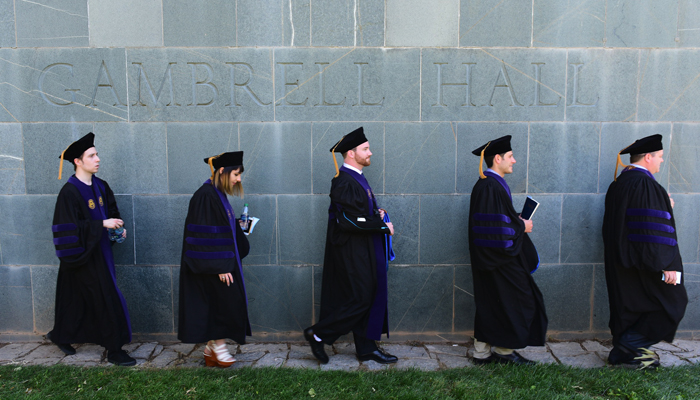
Fresh Perspectives.
Diverse and Inclusive Environment.
Collaboration and Interdisciplinary Study.
Emory University School of Law is a preeminent graduate school of inquisitive and innovative learners. We prepare students for fulfilling legal careers, enrich communities, and affect positive societal transformation by advancing the rule of law. Emory Law provides an experience that uniquely prepares graduates to be able to drive societal impact in their community and worldwide. We work to promote a sense of belonging in our community so that faculty, staff, and students of any background can thrive. We are home to a number of thought leaders in law and our reach throughout the United States and worldwide is bolstered by the relationships and experiences Emory Law promotes.
Learning to practice law is about more than reading cases and statutes. We provide students with unique educational and cultural resources. Our students are involved in clinical work, journals, competitions, and public service. They become part of the communities in which they live and work, listening to the problems people face, and finding ways to engage the law in creating solutions.
History and Mission
Professor Herschel W. Arant and Bishop Warren A. Candler, the chancellor of Emory University, aspired to create a law school that would be in league with the law schools of nationally recognized universities, emphasize the "ethics and ideals of an ancient and honorable profession," and encourage the service of the law.
The original location (now Carlos Hall) was one of the original buildings on the Emory Quadrangle. The building, featuring a graceful central staircase and Georgia marble facade, was designed by the highly regarded Beaux-Arts architect Henry Hornbostel. Twenty-eight students enrolled in the fall of 1916.
Under the leadership of Samuel C. Williams, the first dean, the law school was the first in Georgia to be granted membership in the Association of American Law Schools. The American Bar Association classified Emory as a "Class A" school in 1923. The only other schools in the Southeast to be honored with this designation were the University of Virginia and Washington and Lee University.
E. Smythe Gambrell, a graduate of Harvard Law School, joined the adjunct faculty in 1924. He served on the faculty until the eve of World War II and later provided the gift that enabled the construction of the present-day law school building—Gambrell Hall, named in memory of his parents.
Today, Emory University School of Law combines a practical and disciplined view toward the study of law. Our graduates are prepared to make an immediate impact after graduation.
Deans of the Law School
William D. Thomson, 1916-1919 (acting dean)
Samuel Cole Williams, 1919–1924
Paul Bryan 1924-1925 (acting dean)
Charles Joseph Hilkey, 1925–1948
William D. Thomson, 1948-1949 (acting dean)
Maurice S. Culp, 1949-1950 (acting dean)
William H. Hepburn, 1950–1960
Ben F. Johnson Jr., 1961–1973
Lyman Ray Patterson, 1973–1979
Harold Marquis, 1979-1980 (interim dean)
Thomas D. Morgan, 1980–1985
David G. Epstein, 1985–1989
Howard O. "Woody" Hunter, 1989–2001
Peter Hay, 2001-2002 (interim dean)
Thomas C. Arthur, 2002–2005
Frank Alexander, 2005-2006 (interim dean)
David F. Partlett, 2006–2012
Robert A. Schapiro, 2012–2017
Judson Graves, 2017 (interim dean)
James B. Hughes Jr., 2017–2019 (interim dean)
Mary Anne Bobinski, 2019-2024
Richard D. Freer, 2024-